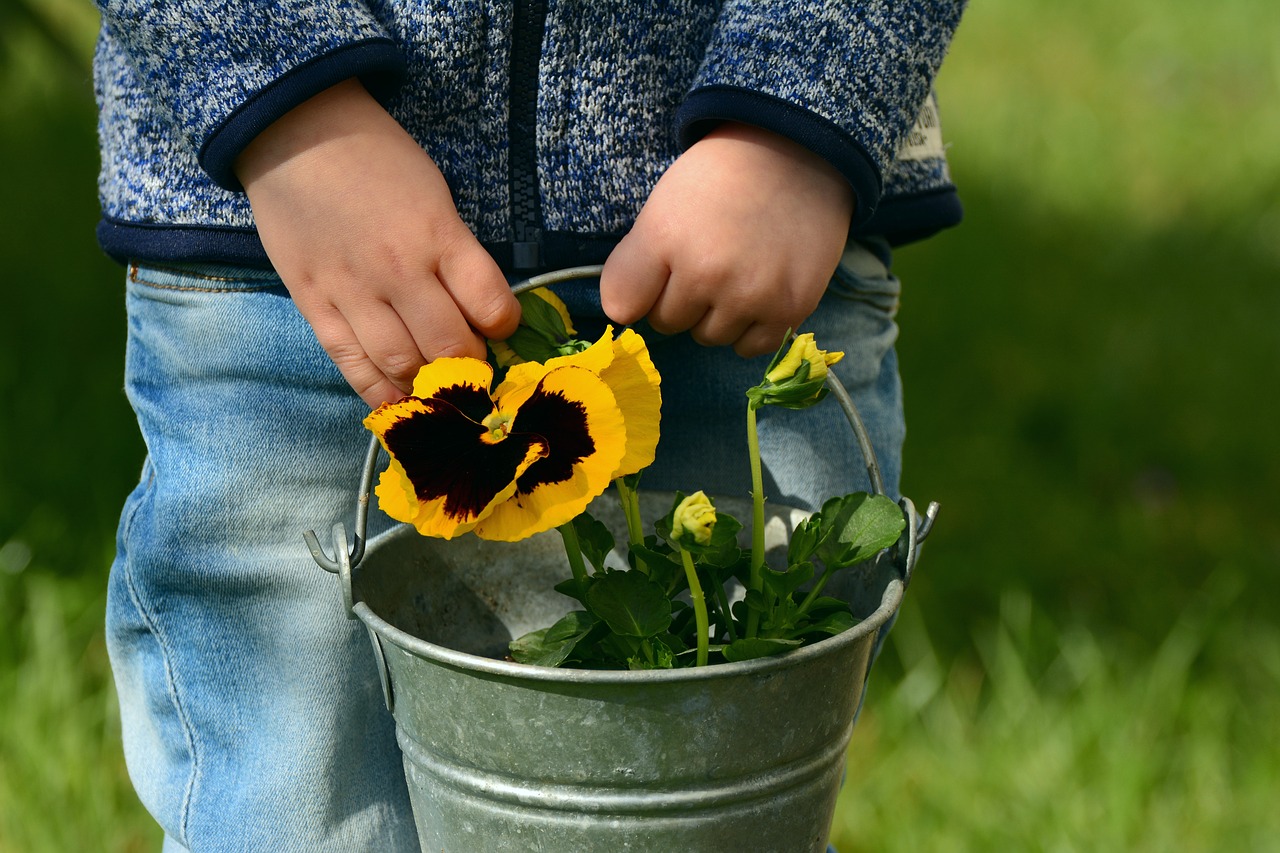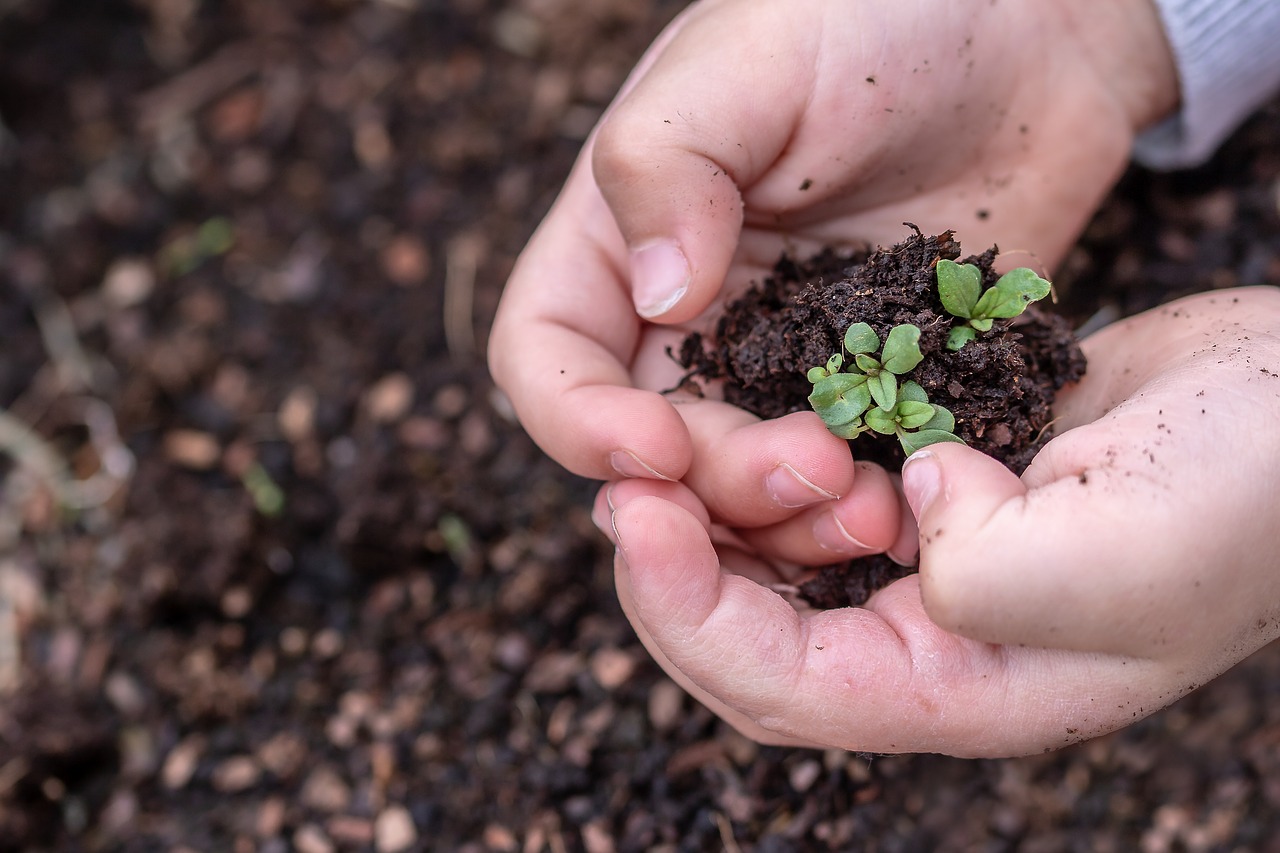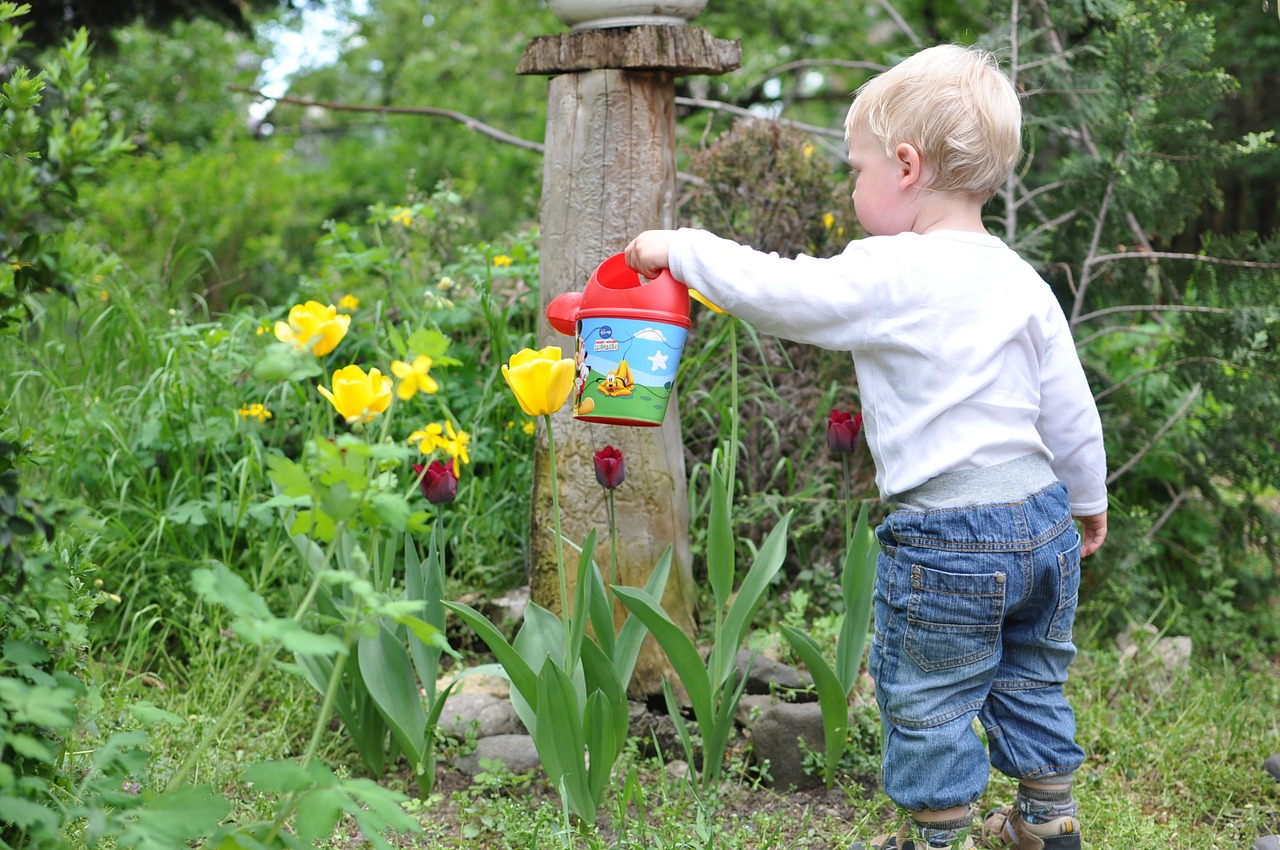When it’s time to tackle yard work tasks, who handles the bulk of the work? If your family is like most, mom and dad most likely take on the majority of the chores.
Getting everyone involved with taking care of the yard can do a lot more than get the work done faster, though. Working in the yard together is good quality family time, and everyone gets some fresh air and exercise. Giving kids a task to do in the yard also helps them learn valuable skills – and when their efforts pay off with healthy veggies or beautiful flowers that you planted together, they learn to value hard work and have a sense of achievement.
Of course, it’s hard to tempt kids away from playing with the promise of fresh vegetables in a few months, or the satisfaction of getting all of the leaves raked up, so how do you get them to pitch in? The trick is to make it fun and age-appropriate, and to show them how hard work pays off.

Age-Appropriate Yard Chores
Obviously, you wouldn’t send your preschooler out with a lawn mower, but what can kids do? As it turns out, there is quite a bit. Little ones (up to age 5) can typically handle easy jobs like picking up sticks, looking for snails or caterpillars on plants, watering, and scattering seeds. Slightly older preschoolers (ages 4-5) are often expert weeders as well. Assign them the task of pulling weeds from the garden or flowerbeds throughout the summer; just be sure to provide some guidance on what to pull and what to leave behind.
Older, school-aged children can usually handle bigger jobs, like helping with raking, transplanting bulbs and seedlings, and feeding and watering plants. Tweens can often handle using the leaf blower as well, with guidance on where to blow the leaves and what not to aim the machine at. Many kids in this age group will be eager to take on tasks like mowing the lawn, but generally speaking they may not be strong enough to handle the machines. Instead, assign them to cleanup duty.
Finally, older teens can usually handle most yard work tasks, although they may be less willing to do them. Assigning weekly chores (and consequences for not doing them) is often most effective with this age group, as are financial incentives.
Make it Fun
Everything is better when it’s fun, and that goes for yard work, too. When you make it fun, kids are more likely to participate.
For example, turn the task into a game, where the kids have to compete to see who can pick up the most sticks or pull the most weeds in 15 minutes. In fact, setting a timer is a very effective way to keep the complaining to a minimum. Set the time for 15-30 minutes, with the promise of a break when the timer goes off. Let the kids run around and play for a few minutes, then get back to work. If you’ve assigned them a raking job, or other big job, give them a defined area to work on, with a promise to do something else when they finish that section.
Giving kids some freedom is also a good way to keep them involved. Let them choose some plants or seeds to plant, or even a little corner of the garden for their own. Giving them something that they can take ownership of will help them remain engaged, especially if you document the progress and show them how things have developed over time.
And of course, incentives always work. The promise of a trip to the ice cream shop when all of the work is done can spur most kids to help mom and dad with the chores.

Keep it Safe
No discussion of yard work is complete without mentioning safety. It’s important to assign tasks that are age-appropriate for safety as well as efficiency reasons. Little ones should never use the lawn mower, trimmers, or chemicals; those tools are best left to adults or a professional Memphis lawn care service. Parents should model safety – wearing long pants and closed toe shoes when mowing for example, and gloves and goggles when handling chemicals. Kids are naturally curious, so clearly explain the dangers and why they need to stay away from certain tools and keep them out of reach of children when not in use.
Making lawn and yard care a family affair creates stronger bonds within your family while teaching kids about nature and the value of hard work. If you start the kids young and make it a regular activity, your yard will look great and your kids will be willing to work hard at other things as well – a win-win for everything.

